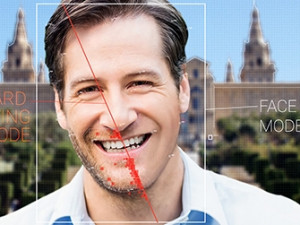
The world is changing at an unprecedented rate and to prepare for the security risks that could arise, Kaspersky Lab has introduced an interactive multimedia project to gather predictions about global social and technological developments.
The Web site, Earth 2050, hosts over 200 predictions made by futurists, scientists and others. Users are able to click on different cities and see the predictions made for that city in 2030, 2040 or 2050.
Users are able to submit their own predictions and agree or disagree with others.
The predictions include looking into the era of cars without drivers, transcontinental flights in three hours, automated mining factories, robotic police, underwater restaurants and more detailed forecasts which will impact everyday life.
For example, by 2030, it is predicted chocolate will be worth its weight in gold due to drought, soil depletion and farmers fleeing from abusive working conditions in West Africa (where two-thirds of the world's cocoa is produced), leading to an increase in the price of cocoa around the world.
By 2040, it is predicted exoskeletons, advanced implants and prosthetics will be common and allow for more physical power.
By 2050, it is predicted artificial insemination will become more available and safe for the health of women. Also, contraception and the birth of a healthy baby will be guaranteed.
Your grandchild's reality
Kaspersky outlined an imagined future scenario of a person living in 2050 and what a typical day-in-the-life may look like to bring together elements of the predictions made on Earth 2050. Futurists and security experts were asked to weigh in on its validity.
The scenario revolves around Thomas, a successful doctor, who has a chip implanted in his brain. The chip allows him to be productive while sleeping, learning Russian as he sleeps, so he will wake up knowing new words. However, he opted for the free version of the Russian learning app, so subliminal adverts are also played to him.
Thomas has an augmented reality (AR) implant contact lens that allows him to check the news projected in front of him while he brushes his teeth.
A shared self-driving car takes him to work where he meets his robot 'clone', who did his night shift for him. He then spends the rest of his day consulting with patients in different cities through a combination of AR and virtual reality that allows him to 'be' in the room with them.
Futurologist Ian Pearson says implanted chips in the brain are entirely possible and probable.
"These chips will enhance our IQ and allow users to do things like check e-mails before they open their eyes in the morning."
He warns there will be a lot of abuses of this by advertisers, and that along with chip implants, future humans will have to have an electronic shield that filters spam.
Kaspersky senior security researcher Stefan Tanase says: "We have already lost our privacy; what is surprising to me is that no one really seems to care. We are going to be sharing even more information by 2050, even without us knowing."
He says hypothetical Thomas learning Russian and hearing adverts at night through an implanted chip would be dangerous. "Letting artificial intelligence influence us opens up a lot of security problems."
However, Pearson says personal assistants could be directly connected to people's brains to give them thought-level access to the cloud and access to all of the world's knowledge.
"Who wouldn't want that?" says Pearson, but he does say only those who fully trust the security on the chip will have it implanted.
He says there have already been experiments showing electronic pulses projected on a certain part of a person's brain can switch off consciousness.
Share